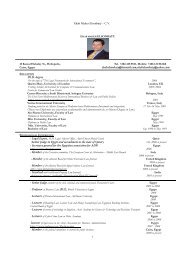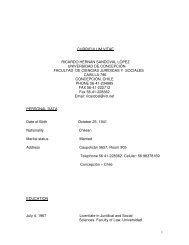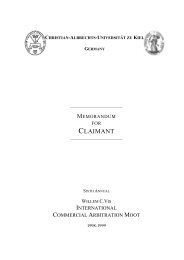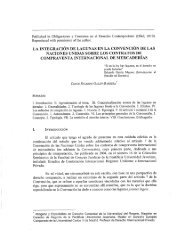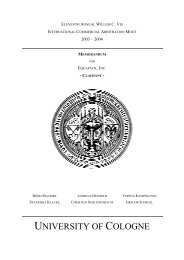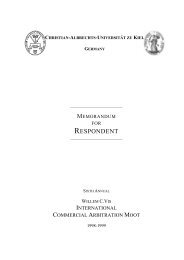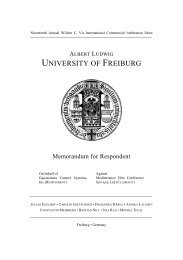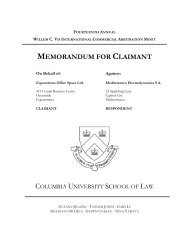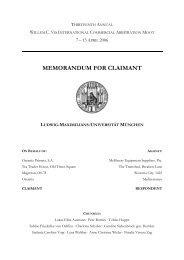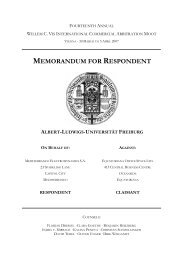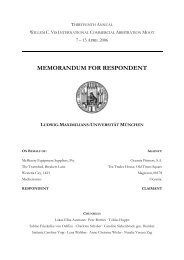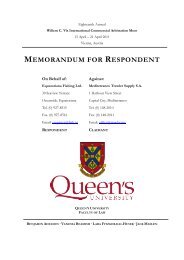Equapack, Inc. v. Medi-Machines S.A. Memorandum for Medi ...
Equapack, Inc. v. Medi-Machines S.A. Memorandum for Medi ...
Equapack, Inc. v. Medi-Machines S.A. Memorandum for Medi ...
You also want an ePaper? Increase the reach of your titles
YUMPU automatically turns print PDFs into web optimized ePapers that Google loves.
2. Both the CISG and UNIDROIT support RESPONDENT’s position.<br />
16. CLAIMANT argues that the Tribunal should follow the French Civil Code and construe<br />
ambiguous terms against RESPONDENT. [<strong>Memorandum</strong> <strong>for</strong> Claimant 33]. Honnold warns<br />
of the “natural tendency to read the international text through the lens of domestic law.”<br />
[Honnold (1) 208]. If the CISG is viewed through a domestic lens, then the image produced will<br />
be distorted. [Murray 366]. Furthermore, “since Article 7(1) asserts that the international<br />
character and need <strong>for</strong> uni<strong>for</strong>mity in application should be taken into account … A domestic law<br />
resolution of an issue would not promote [such ends].” [Darkey 139-40]. Even assuming,<br />
arguendo, that the product description was ambiguous, the CISG does not follow the French<br />
Civil Code’s rule of construction. Instead, the CISG adopts a reasonable person standard of<br />
interpretation. [Art. 8(2) CISG]. The analysis above, [see supra 12], demonstrates that<br />
applying a reasonable person standard of interpretation leads to a product description that does<br />
not include corrosive commodities, such as salt.<br />
17. Looking to the UNIDROIT <strong>for</strong> guidance helps further strengthen RESPONDENT’s<br />
interpretation. In addition to a reasonable person standard of interpretation [Art. 4.1<br />
UNIDROIT], the UNIDROIT also incorporates a contra proferentem rule by which “if contract<br />
terms supplied by one party are unclear, an interpretation against that party is preferred.” [Art.<br />
4.6 UNIDROIT]. In the instant case, CLAIMANT supplied the product description in the<br />
Invitation, which was subsequently incorporated in the Offer and Acceptance as explained<br />
above. [See supra 10]. CLAIMANT qualified the term “wide range of products” with<br />
examples of non-corrosive dry fine and coarse bulk products. CLAIMANT now argues that the<br />
term “wide range of products” also includes corrosive products, and specifically salt. However,<br />
since CLAIMANT supplied the description, it had the burden of providing at least one example<br />
that encompassed a corrosive product, such as salt. If the machines were to have specific<br />
characteristics, CLAIMANT should have in<strong>for</strong>med RESPONDENT. [LG Regensburg, 24 Sept.<br />
1998 (Germany); OLG Koblenz, 11 Sept. 1998 (Germany)]. CLAIMANT did not do so. Under<br />
the contra proferentem rule, CLAIMANT’s failure to specify corrosive products preclude it from<br />
now claiming that the description included machines capable of handling corrosive items, such<br />
as salt.<br />
5



